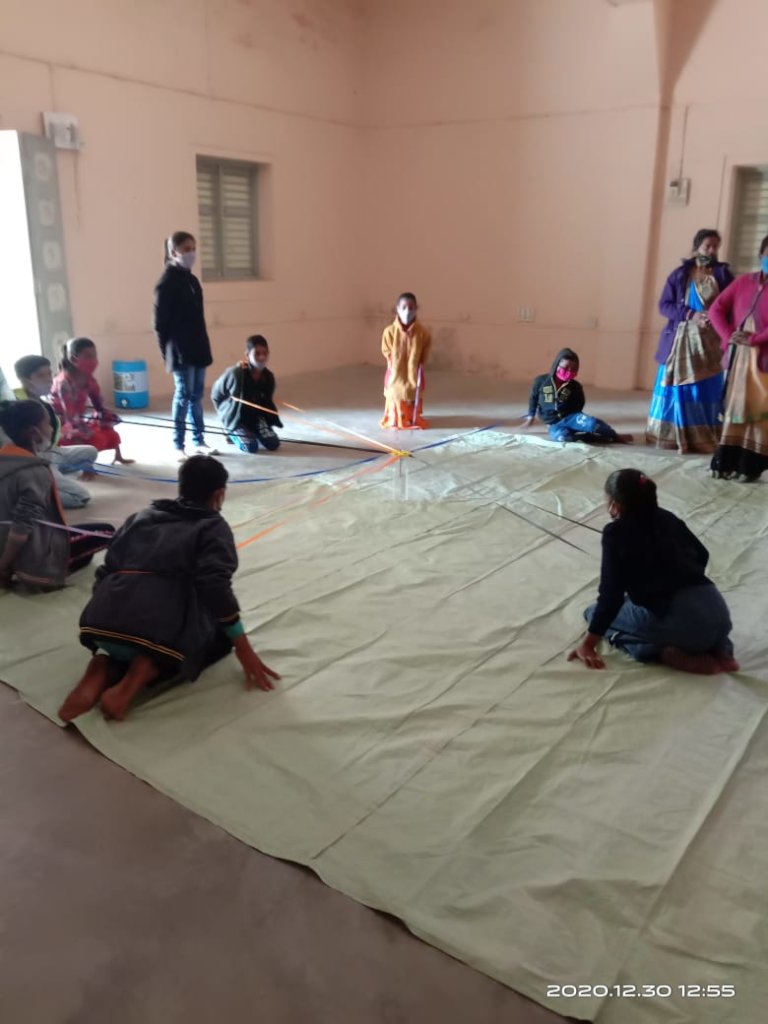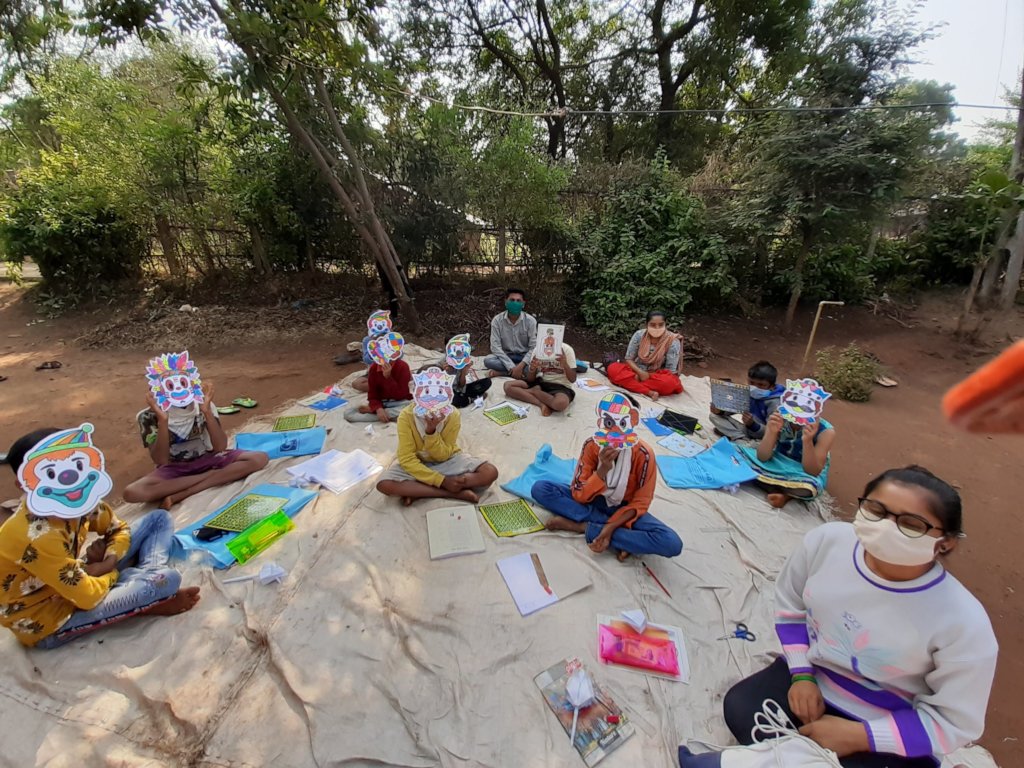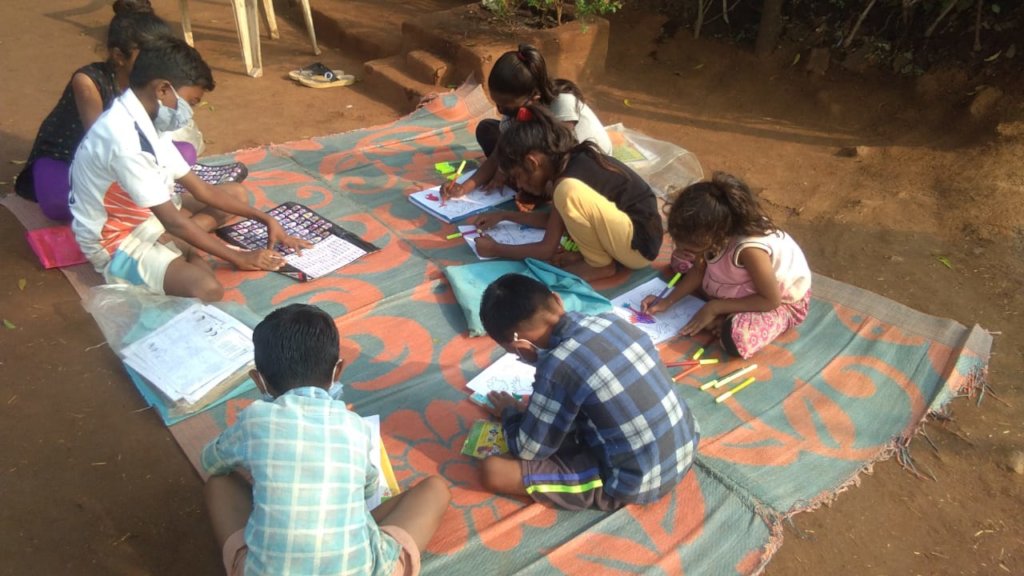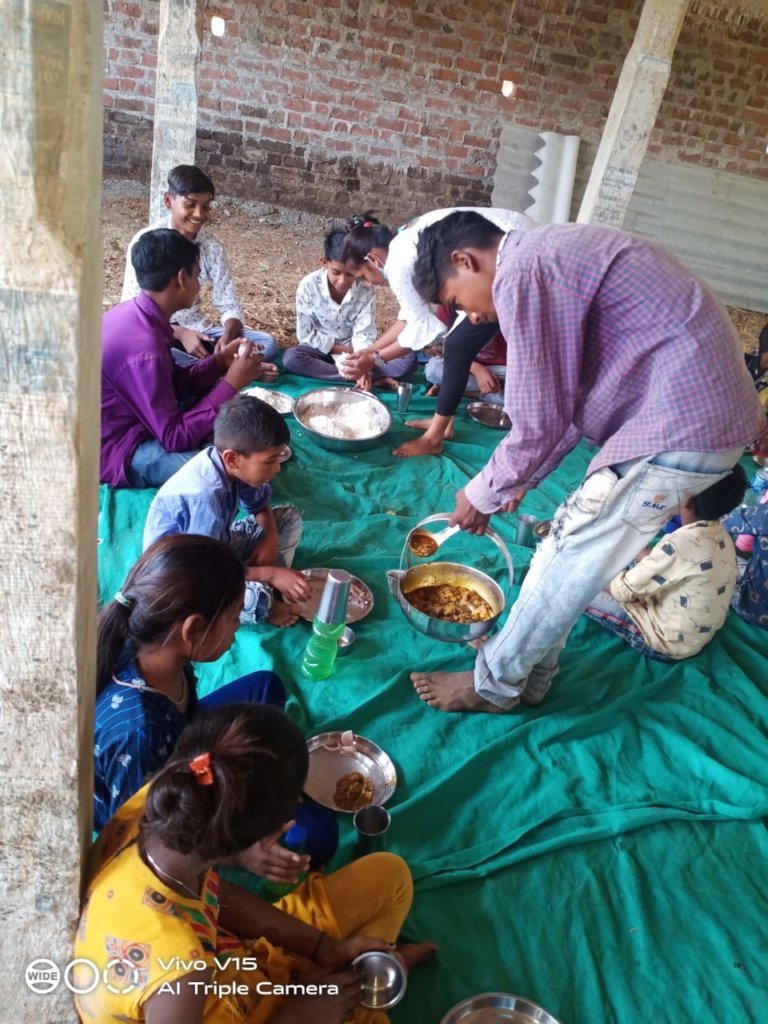By Isha Sheth | Project Leader
The tribal villages of Dediapada were least affected by COVID. However, the online school affected all the children. They were not able to study through online / TV medium, access to them was also difficult.
We started our activities with children in small groups of 5-7 children at their doorstep with taking precautions such as mask, sanitization and distancing. We brought more focus to educational activities to help children manage their studies, and guided them if they had any questions or difficulties. We do these educational activities by doing activities keeping in mind different learning style of children.
Towards mid-December, The Ashok Hirway Education Project provided Shaishav with 15 tablets, 2 laptops and 2 printers. All the staff members have been given a tablet to carry to the field to ensure that children do not fall behind in their studies amid the closure of schools with classes happening virtually. This initiative of providing free tuition classes was started to keep children engaged in continuous learning so that they do not involve in child labour. Keeping this objective in mind, Shaishav team members downloaded the Gujarat State Board curriculum as well as the Shalamitra app. Relevant DIY videos on science experiments, content based activities, children stories, songs, poems, paper crafts as well as all the important events from the celebration of Gandhi’s 150 years about his ideology and simple way of living have been stored in the tablets. This initiative has received an overwhelming response from children because they not only develop conceptual clarity in subject matters but find learning interesting and all through engaging.
Along with educational activities we also facilitated activities around creative and critical thinking, problem solving and self-awareness, etc. through games and art activities. This not only improved life skills but also helped them manage their stress due to COVID-19.
Vanbhojan:
Children who eat together stay together! Children were quite bored with staying at home and being in lockdown. They demanded we take them for Vanbhojan (eating together in forest). We took them to a farm near their village, taking care of Covid-logistics, we all cooked together, children brought one small bowl of rice and dal and we brought vegetables and buttermilk and everyone cooked together Khichadi. They played together, ran from here to there, danced and had absolute blast. We did 2 Vanbhojan in month of February. 135 Children of 3 villages participated in these. Volunteers and Baldosts from villages supported in these Vanbhojan a lot. They helped facilitators in cooking, managing children, and safely brining children to and from the farm.
Work in Aashramshala:
The high schools opened towards the end of January. In our work with Aashramshalas, we work in two high schools. One high school invited us to start working with their children again. We focused mainly on activities that created self-awareness, where they could creatively share their thoughts and feelings, think critically and relieve themselves from stress and anxiety of exams.
Other Aashramshalas are still not operating or are under tremendous pressure to finish syllabus, because they were not able to qualitatively work in online environment for reasons discussed above. We will start working their again once situation is little bit better.
Wenlido Training:
We also facilitated a wenlido training in the Aashramshala with 22 girls of 9th and 10th grade. After the training during the feedback they shared that their confidence to get out of the house has increased.
Case Studies:
Sunil (name changed) shares; “I used to go to school and come for activities in Shaishav. But due to lockdown everything was closed, school and Shaishav activities. Online education was very hard for me, so my parents sent me with my grandfather every day for animal grazing. When Shaishav facilitators started coming back to our village for activities I wanted to go but I couldn’t, my parents sent me for animal razing. I was very sad about this. I remembered all the activities they used to do with us. So, I fought with my parents, and started coming back for activities in the morning and I went for animal grazing afterwards. This has also allowed me to continue my studies. ”
Nehal’s (name changed) parents are both labourers. They didn’t have a smart phone. So, when schools closed and online education started he couldn’t study. He helped his parents in farm and was bored. When the facilitators started coming back, one of the point was at his home. He came regularly, as he remembered how fun it used to be. He was delighted with the activity kit and played and did many activities from it.
When facilitators started coming with Tablets, he was able to start his studies again. He further shares that because there were many visuals, it helped him in understanding concepts and remembering them. He shares that when facilitators show scientific experiments on tablets and they actually get to do it later, that is most fun. He also likes that in between of studies when they get bored facilitators show then children’s stories.
Project reports on GlobalGiving are posted directly to globalgiving.org by Project Leaders as they are completed, generally every 3-4 months. To protect the integrity of these documents, GlobalGiving does not alter them; therefore you may find some language or formatting issues.
If you donate to this project or have donated to this project, you can receive an email when this project posts a report. You can also subscribe for reports without donating.
Support this important cause by creating a personalized fundraising page.
Start a Fundraiser


